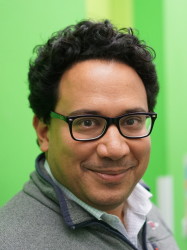BibTex format
@inproceedings{Wannawas:2021:10.1109/NER49283.2021.9441354,
author = {Wannawas, N and Subramanian, M and Faisal, A},
doi = {10.1109/NER49283.2021.9441354},
publisher = {IEEE},
title = {Neuromechanics-based deep reinforcement learning of neurostimulation control in FES cycling},
url = {http://dx.doi.org/10.1109/NER49283.2021.9441354},
year = {2021}
}

